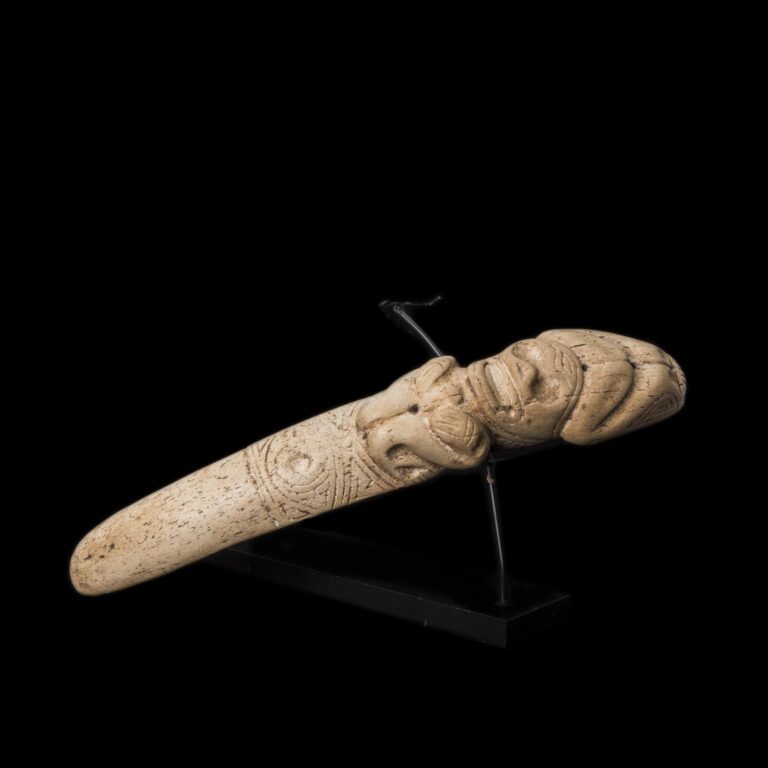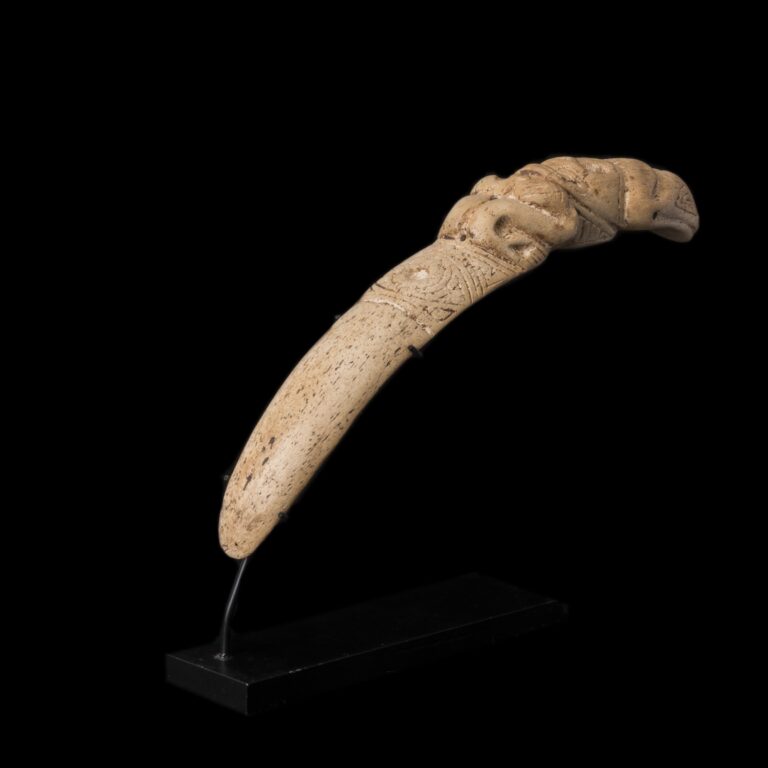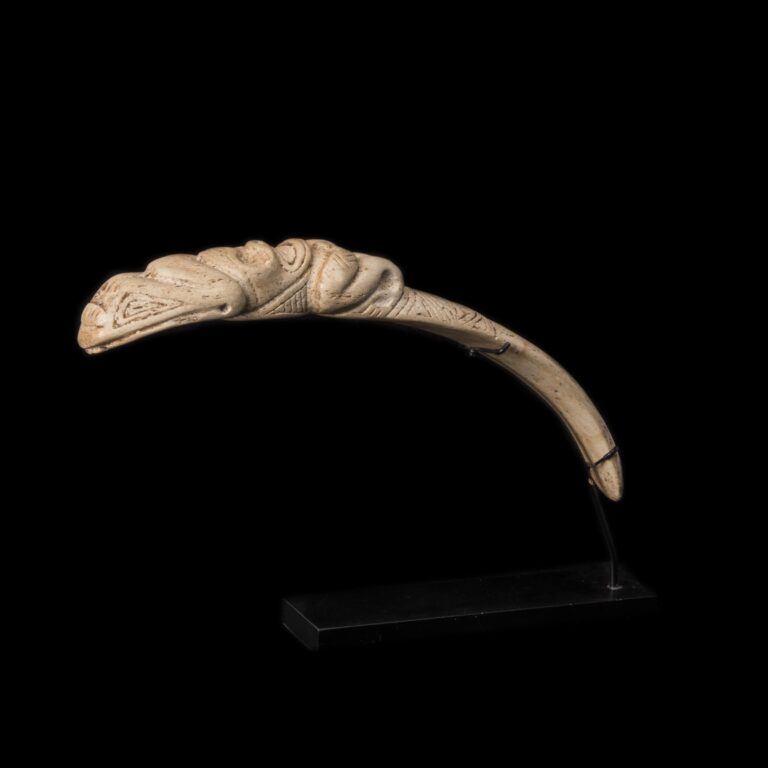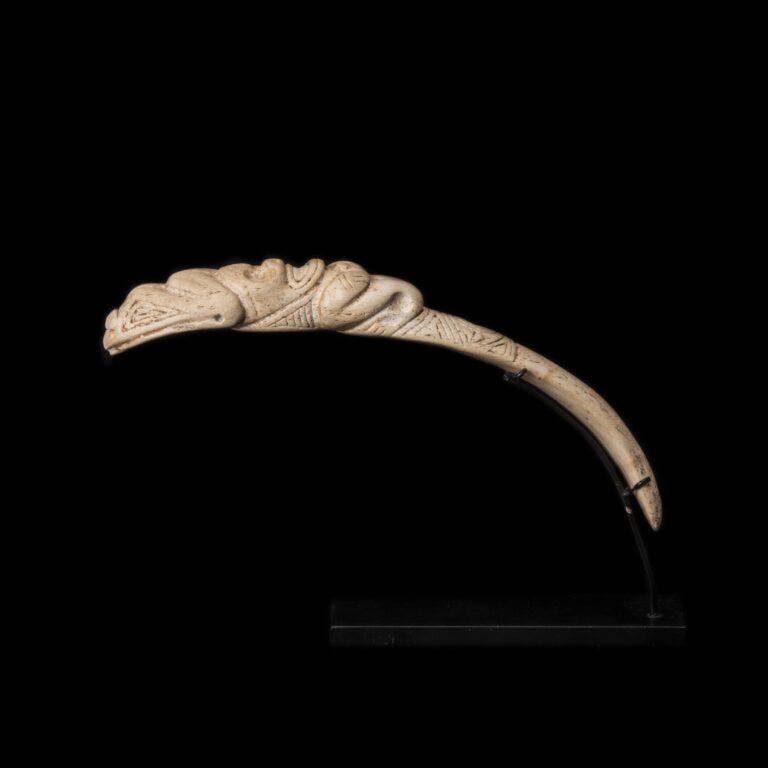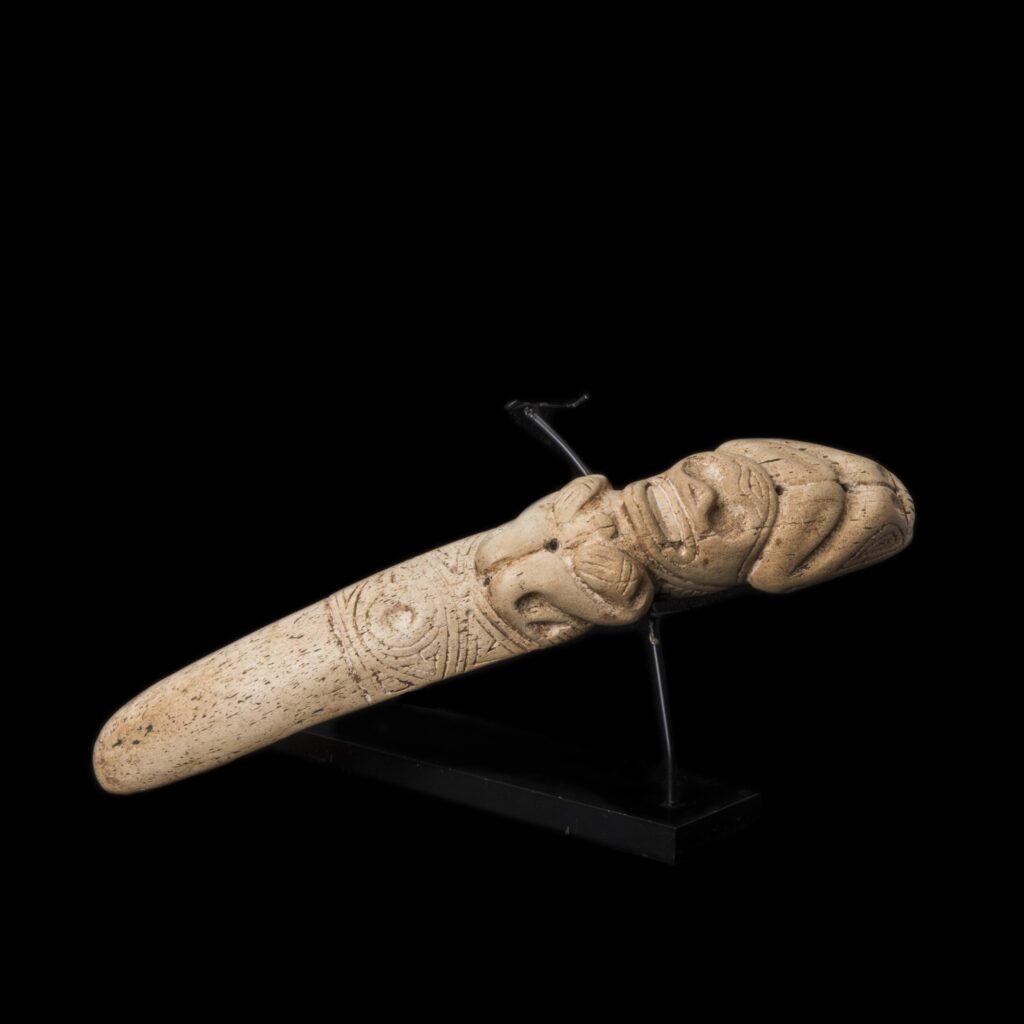
Taíno spatulae, Taíno culture, Dominican Republic. Ribs of a manatee.
DESCRIPTION/EXPERTISE
The Taíno were part of a complex mosaic of native cultures inhabiting the islands of the Caribbean. The Taíno were the first indigenous people of the westen hemisphere to meet Spanish explorers. When Christopher Columbus landed on Hispaniola, the island which is nowadays Haiti and The Dominican Republic, in 1492, the native inhabitants of the island identified themselves as Taínos – a term meaning ‘good’, ‘prudent’ or ‘noble’.
These long spatulate devices were used for purging prior to cohoba ingestion. They were inserted into the throat to cleanse the body and thus intensify the drugs effect. Most were made from manatee ribs, wood and shell. The end held during insertion was usually carved into a human or animal like cemi.
Manatees were hunted throughout the Caribbean as a primary source of protein. Their large size, some could weigh over 3,000 pounds, provided the major source of red meat, fat, hide, and bone. There were no large animals in the islands, so accessible manatee was an important resource.
MEDIUM
Bone
SIZE
PROVENANCE
PRICE
Expertly mounted
All dimensions are without the mounting
Object collected in Dominican Republic and incorporated in European collection at beginning of the 1960’s.

